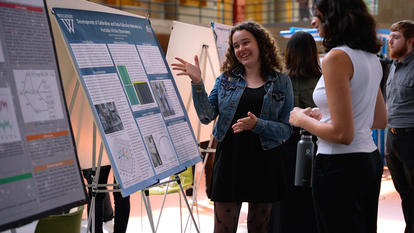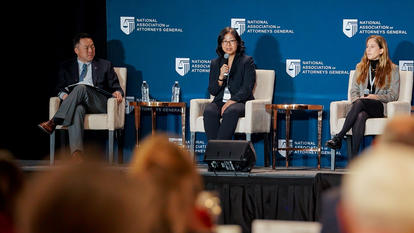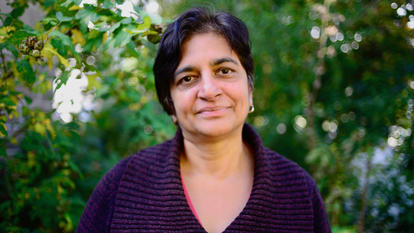On Human Rights Day, Wellesley Professor Asks Us to Help Humanity Thrive

This article recently appeared on Women Change Worlds, the blog of the Wellesley Centers for Women, and was written by Layli Maparyan, the Katherine Stone Kaufmann ’67 Executive Director of the Wellesley Centers for Women at Wellesley.
Let’s Put the Humanity Back into Human Rights
“Whereas recognition of the inherent dignity and of the equal and inalienable rights of all members of the human family is the foundation of freedom, justice and peace in the world...”
–Taken from the preamble to the Universal Declaration of Human Rights
Thich Nhat Hanh, the Vietnamese Buddhist monk nominated for the Nobel Peace Prize by Martin Luther King, Jr., in 1967, famously characterized the human mind as a storehouse filled with two kinds of seeds: good and bad. Humans have the capacity to be both good and evil, he pointed out, and it’s the seeds we water that ultimately grow. Think about that. When we look around the world today, we see a lot of evil sprouting up all around, and we wonder where it came from. We scratch our heads, we point fingers, and sometimes, in frustration, we join in the fray. Based on Thich Nhat Hanh’s insight, we should really take a closer look at how we are watering the seeds of the very evils we decry and detest—incivility, hate-based conflict and violence, and even basic intolerance.
Human Rights Day on December 10 gives us the opportunity to think about the ways in which we are dehumanizing each other, and to find our way back to affirming—and, indeed, watering the seeds of—one another’s full humanity. Isn’t that the point of the Universal Declaration of Human Rights, proclaimed 70 years ago? This is a tall challenge right now because we are very much in an “if you’re not with us, you’re against us” moment. This polarized point of view is now an emotional trigger affecting every single policy issue and every single attempt at public discourse. It’s even dividing families and weakening friendships.
The truth is this: Human beings yearn for the water of connection and the sunshine of goodness. Like the seeds of any plant, human being-ness takes root in rich soil and stretches its leaves toward the light. If you doubt this, just look at babies and how they thrive in the presence of love, care, kindness, helpfulness, connection, validation, and education. When these forms of goodness are absent—or worse, when the opposite kinds of conditions prevail—little ones fail to thrive. Often, when watered with the bad things, children are traumatized, and they carry these traumas with them throughout life, where they become far more susceptible to extreme degrees of fear, anger, and hate. We have the power to shape their world, to water their world with goodness. We hold their future in our hands, beneath the water in our watering cans. This understanding—and this responsibility—is enshrined in the U.N. Declaration of the Rights of the Child, which will celebrate its 60th anniversary next year, in addition to the U.N. Declaration of Human Rights, which is celebrating its 70th anniversary this year.
Read more.
Photo: Mrs. Eleanor Roosevelt, Chairman of Human Rights Commission, speaks during a press conference after the completion of the Declaration of Human Rights. December 7,1948, Paris, France.



